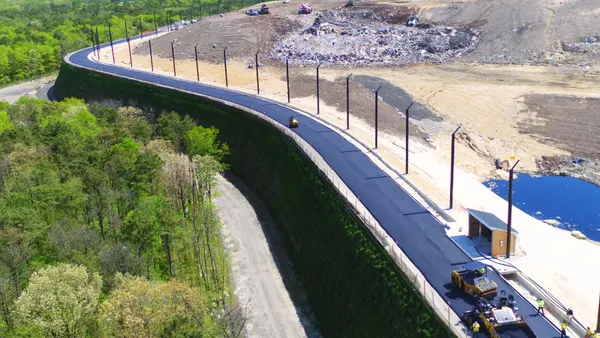Dive Brief:
- Nashville's Metro Council recently voted to require county approval for any future proposals to build new landfills or expand existing ones, as reported by the Tennessean.
- At least 45 other countries have already passed similar versions of what's known as the "Jackson Law," named after a 1989 state bill. By requiring additional approval from the county council, local officials hope to exercise more control over the size or scale of future landfills in the area.
- Though some legislators raised concerns about whether this law could actually favor landfill operators and noted that the bill's sponsor used to work for a landfill company. Different legal standards will now be applied during a potential appeals process that opponents believe could work against the county's interests. The bill's sponsor, and a representative of his former employer, dismissed this notion.
Dive Insight:
The Jackson Law was originally passed in 1989 following a period of community pushback on various landfill projects and a desire to give local governments a say over decisions Tennessee's Department of Environmental Conservation. The details of how this gets applied, and whether that favors companies involved, vary on a case-by-case basis. Though as the landfill in nearby Rutherford County —where Nashville currently sends its waste — nears capacity, local officials are wary of any potential efforts to build a new one.
Nashville has recently taken steps to improve its diversion efforts, which could help reduce some of its landfill needs in the future. Earlier this year, the city released a report calling for 35% landfill diversion by 2020 and eventually "zero waste" by 2050. Organics are seen as a key part of this plan and Nashville has teamed up with the Natural Resources Defense Council for a wide-ranging Food Waste Initiative.
All of this progress will be beneficial for the city's long-term sustainability goals, but in the meantime they will still need a disposal option if the Rutherford landfill reaches capacity. Whether this means exporting to a different landfill, building a new one, or getting involved with talk of a regional waste-to-energy facility remains to be seen. Any options that are located in Davidson County will now be subject to a new law that officials hope will be in their best interest.










